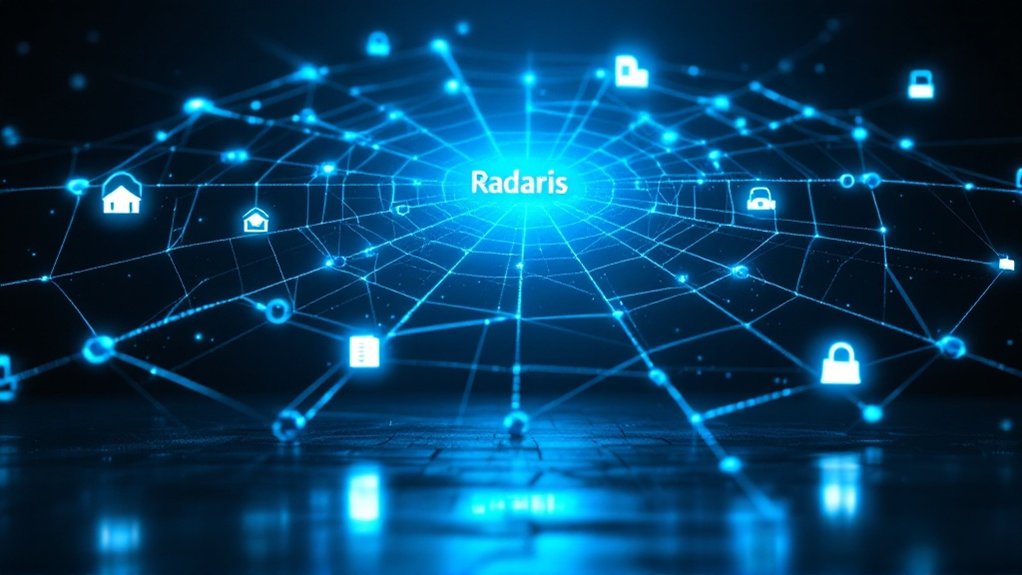Radaris operates as a data broker company that collects and sells detailed personal information, including names, addresses, employment history, and social media profiles, often without explicit consent from individuals. Founded in 2009, the company aggregates data from public records, government databases, and various online sources, creating extensive digital profiles that raise significant privacy concerns. With 79% of Americans expressing worry about corporate data usage, Radaris’ practices highlight broader issues of data privacy, identity theft risks, and limited regulatory oversight in the information marketplace.

How much personal information is readily available through data brokers? Radaris, established in 2009 as a people-search network, exemplifies the extensive reach of modern data aggregation services. The platform systematically collects and compiles personal information from various public sources, creating detailed profiles of individuals without their explicit consent or knowledge.
Data brokers like Radaris amass vast personal profiles from public sources, often without individuals knowing their information is being collected.
According to the Pew Research Center, 79% of Americans express serious concerns about how companies use their personal data. Operating as a thorough data broker, Radaris accumulates an extensive range of personal details, including names, addresses, phone numbers, and email addresses. The service extends beyond basic contact information to encompass age, birth dates, employment history, education details, and even social media profiles. The platform’s customer service assistance is available for users experiencing difficulties with information removal requests.
More sensitive data, such as criminal records, property records, and marriage or divorce information, are likewise incorporated into individual profiles. The company sources its data through multiple channels, including public records, government databases, social media platforms, and professional data providers. This extensive network of information sources permits Radaris to create detailed personal profiles that can be accessed through both free basic searches and paid detailed reports. Implementing two-factor authentication has become crucial for protecting sensitive personal information from unauthorized access.
The platform’s capacity to aggregate data from non-digitalized records further expands its information repository. Privacy advocates express significant concerns about services like Radaris, citing increased risks of identity theft, stalking, and online fraud. The lack of a solid verification process for data accuracy compounds these concerns, as profiles may contain outdated or incorrect information.
Although Radaris offers an opt-out process through their website, phone line, or email, the procedure often requires users to create an account and provide additional personal information. The legal framework surrounding data brokers remains complex, with Radaris explicitly stating it should not be used for credit, housing, or employment decisions under the Fair Credit Reporting Act.
Recent regulatory developments, including a 2024 White House executive order, may affect the data broker industry, though people-search sites are likely to remain largely unaffected. Privacy experts recommend regular monitoring of online presence and proactive opt-out requests from multiple data broker services to maintain personal privacy in the digital age.
Frequently Asked Questions
How Can I Delete My Personal Information From Radaris?
To remove personal information from Radaris, individuals can visit Radaris.com and select “Remove My Info” in the footer section.
After searching and locating their profile, users must click “Start removing,” enter their email address, and complete CAPTCHA verification.
On the other hand, people can contact customer service at (855) 723-2747 or email removal requests to [email protected], including their full name, date of birth, addresses, and profile URL.
Does Radaris Update Their Information in Real-Time?
Radaris does not provide real-time updates to their information databases. During the company compiles data from various sources, including government agencies and public records, updates occur only when new information becomes available through their data providers.
Research indicates approximately 40% of data broker information may be inaccurate or outdated, as confirmed by NATO studies. The platform’s update frequency varies based on source availability and data collection cycles.
What Are the Costs Associated With Using Radaris Premium Services?
Radaris offers several premium subscription tiers, with monthly access priced at $26.95 and a quarterly option at $63.95 ($21.31/month).
Additional services include a contact data plan for $9.95 monthly. For one-time purchases, single background reports cost $19.95.
Premium content and customized reports may carry separate pricing. All subscriptions auto-renew, and although cancellation is available anytime, the company maintains a strict no-refund policy.
Can Radaris Information Be Used Against Me in Legal Proceedings?
Radaris information can be admissible in legal proceedings, though subject to specific limitations and verification requirements.
Although the data may support background checks, witness location, and asset searches in civil litigation, courts typically do not consider it equivalent to official records.
Individuals can protect themselves through opt-out procedures, requesting corrections to inaccurate information, and seeking protective orders to limit data disclosure in legal contexts.
How Accurate Is the Background Check Information Provided by Radaris?
Radaris background check information demonstrates variable accuracy levels, as it aggregates data from multiple public sources without consistent verification.
During the platform regularly updates its database, the quality depends heavily on original source accuracy and reporting timeliness.
Independent studies indicate that background check services like Radaris may contain outdated or incorrect information in approximately 20% of cases, necessitating independent verification before making significant decisions.









